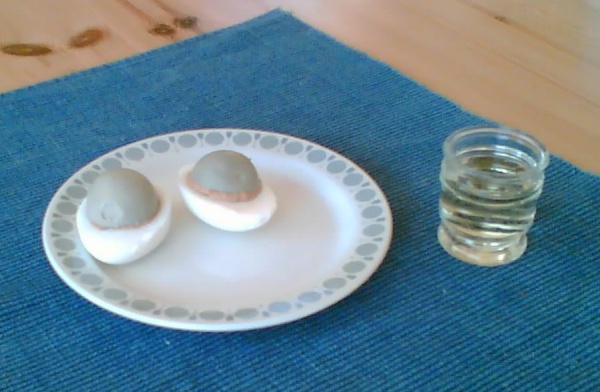Facts About Pickled egg
Pickled eggs are hard-boiled eggs preserved in vinegar or brine, a technique rooted in the necessity of food preservation. Today, they are a popular snack or appetizer in pubs, bars, and taverns worldwide.
The process begins with boiling and peeling the eggs. They are then submerged in a mixture of vinegar, salt, spices, and other seasonings. Depending on the recipe, the pickling solution can imbue the eggs with flavors ranging from sweet to spicy. The longer the eggs remain in the solution, the more pronounced the flavor becomes. However, caution is needed—leave them too long and they can become rubbery. While some people pierce the eggs to expedite the pickling process, this practice can introduce harmful bacteria and is therefore not recommended.
A notable variation comes from the Pennsylvania Dutch: pickled beet eggs. These eggs are pickled with beets, onions, vinegar, sugar, salt, cloves, and cinnamon, resulting in a striking pink or purple hue and a delightful sweet-sour flavor. This dish is a staple in Pennsylvania Dutch country and has garnered fans in the surrounding regions. Pickled eggs can be enjoyed on their own, as part of a main course, or as a garnish.
In British cuisine, a typical pickled egg recipe includes eggs, vinegar, salt, and sugar. The process is straightforward: boil and peel the eggs, then pickle them with the other ingredients. These pickled eggs can last for three to four months. They are a cherished treat often found in British pubs and fish and chip shops.

 Germany
Germany